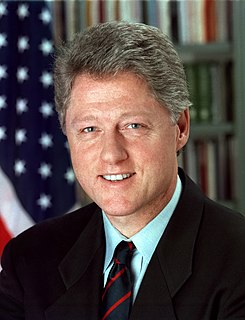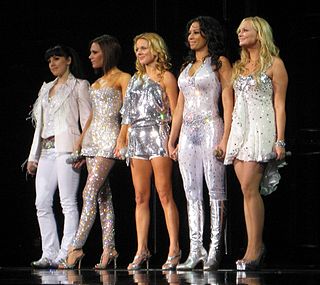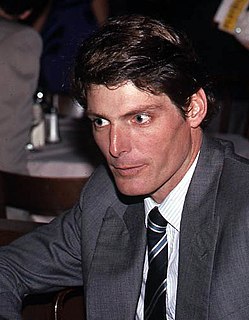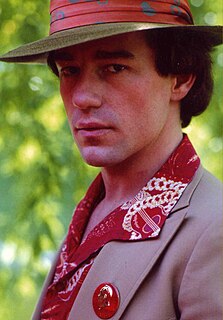
Animation is a method by which still figures are manipulated to appear as moving images. In traditional animation, images are drawn or painted by hand on transparent celluloid sheets to be photographed and exhibited on film. Today, most animations are made with computer-generated imagery (CGI). Computer animation can be very detailed 3D animation, while 2D computer animation can be used for stylistic reasons, low bandwidth, or faster real-time renderings. Other common animation methods apply a stop motion technique to two- and three-dimensional objects like paper cutouts, puppets, or clay figures.
Artificial intelligence (AI) is intelligence—perceiving, synthesizing, and infering information—demonstrated by machines, as opposed to intelligence displayed by animals and humans. Example tasks in which this is done include speech recognition, computer vision, translation between (natural) languages, as well as other mappings of inputs. The Oxford English Dictionary of Oxford University Press defines artificial intelligence as:
the theory and development of computer systems able to perform tasks that normally require human intelligence, such as visual perception, speech recognition, decision-making, and translation between languages.

Auschwitz concentration camp was a complex of over 40 concentration and extermination camps operated by Nazi Germany in occupied Poland during World War II and the Holocaust. It consisted of Auschwitz I, the main camp (Stammlager) in Oświęcim; Auschwitz II-Birkenau, a concentration and extermination camp with gas chambers; Auschwitz III-Monowitz, a labor camp for the chemical conglomerate IG Farben; and dozens of subcamps. The camps became a major site of the Nazis' final solution to the Jewish question.

William Jefferson Clinton is an American politician who served as the 42nd president of the United States from 1993 to 2001. He previously served as governor of Arkansas from 1979 to 1981 and again from 1983 to 1992, and as attorney general of Arkansas from 1977 to 1979. A member of the Democratic Party, Clinton became known as a New Democrat, as many of his policies reflected a centrist "Third Way" political philosophy. He is the husband of Hillary Clinton, who was a senator from New York from 2001 to 2009, secretary of state from 2009 to 2013 and the Democratic nominee for president in the 2016 presidential election.

Calvin Coolidge was the 30th president of the United States from 1923 to 1929. Born in Vermont, Coolidge was a Republican lawyer from New England who climbed up the ladder of Massachusetts state politics, becoming the state's 48th governor. His response to the Boston Police Strike of 1919 thrust him into the national spotlight as a man of decisive action. Coolidge was elected the country's 29th vice president the next year, succeeding the presidency upon the sudden death of President Warren G. Harding in 1923. Elected in his own right in 1924, Coolidge gained a reputation as a small-government conservative distinguished by a taciturn personality and dry sense of humor, receiving the nickname "Silent Cal." Though his widespread popularity enabled him to run for a third term, he chose not to run again in 1928, remarking that ten years as president was "longer than any other man has had it – too long!"

Sir John Major is a British former politician who served as Prime Minister of the United Kingdom and Leader of the Conservative Party from 1990 to 1997, and as Member of Parliament (MP) for Huntingdon, formerly Huntingdonshire, from 1979 to 2001. Prior to becoming prime minister, he served as Foreign Secretary and Chancellor of the Exchequer in the third Thatcher government.

Ludwig van Beethoven was a German composer and pianist. Beethoven remains one of the most admired composers in the history of Western music; his works rank amongst the most performed of the classical music repertoire and span the transition from the Classical period to the Romantic era in classical music. His career has conventionally been divided into early, middle, and late periods. His early period, during which he forged his craft, is typically considered to have lasted until 1802. From 1802 to around 1812, his middle period showed an individual development from the styles of Joseph Haydn and Wolfgang Amadeus Mozart, and is sometimes characterized as heroic. During this time, he began to grow increasingly deaf. In his late period, from 1812 to 1827, he extended his innovations in musical form and expression.

Mikhail Sergeyevich Gorbachev was a Soviet politician who served as the last leader of the Soviet Union from 1985 to the country's dissolution in 1991. He served as General Secretary of the Communist Party of the Soviet Union from 1985 and additionally as head of state beginning in 1988, as Chairman of the Presidium of the Supreme Soviet from 1988 to 1989, Chairman of the Supreme Soviet from 1989 to 1990 and the only President of the Soviet Union from 1990 to 1991. Ideologically, Gorbachev initially adhered to Marxism–Leninism but moved towards social democracy by the early 1990s.

The Spice Girls are a British girl group formed in 1994, consisting of Melanie Brown, also known as Mel B ; Melanie Chisholm, or Melanie C ; Emma Bunton ; Geri Halliwell ; and Victoria Beckham. With their "girl power" mantra, they redefined the girl-group concept by targeting a young female fanbase. They led the teen pop resurgence of the 1990s, were a major part of the Cool Britannia era, and became pop culture icons of the decade.

Warner Bros. Entertainment Inc. is an American film and entertainment studio headquartered at the Warner Bros. Studios complex in Burbank, California, and a subsidiary of Warner Bros. Discovery. Founded in 1923 by four brothers, Harry, Albert, Sam, and Jack Warner, the company established itself as a leader in the American film industry before diversifying into animation, television, and video games and is one of the "Big Five" major American film studios, as well as a member of the Motion Picture Association (MPA).

Gary Cooper was an American actor known for his strong, quiet screen persona and understated acting style. He won the Academy Award for Best Actor twice and had a further three nominations, as well as an Academy Honorary Award in 1961 for his career achievements. He was one of the top 10 film personalities for 23 consecutive years and one of the top money-making stars for 18 years. The American Film Institute (AFI) ranked Cooper at No. 11 on its list of the 25 greatest male stars of classic Hollywood cinema.

Lyndon Baines Johnson, often referred to by his initials LBJ, was an American politician who served as the 36th president of the United States from 1963 to 1969. He had previously served as the 37th vice president from 1961 to 1963 under President John F. Kennedy, and was sworn in shortly after Kennedy's assassination. A Democrat from Texas, Johnson also served as a U.S. representative, U.S. senator and the Senate's majority leader. He holds the distinction of being one of the few presidents who served in all elected offices at the federal level.

Christopher D'Olier Reeve was an American actor, best known for playing the titular character in the film Superman (1978) and its first three sequels.

Philip Edward Hartman was a Canadian-American actor, comedian, screenwriter and graphic designer. Hartman was born in Brantford, Ontario, Canada, and his family moved to the United States when he was ten years old. After graduating from California State University, Northridge with a degree in graphic arts, he designed album covers for bands including Poco and America. In 1975, he joined the comedy group The Groundlings, where he helped Paul Reubens develop his character, Pee-wee Herman. Hartman co-wrote the film Pee-wee's Big Adventure and made recurring appearances as Captain Carl on Reubens' show Pee-wee's Playhouse.

The 1998 FIFA World Cup was the 16th FIFA World Cup, the association football world championship for men's national teams. The finals tournament was held in France from 10 June to 12 July 1998. The country was chosen as the host nation by FIFA for the second time in the history of the tournament, defeating Morocco in the bidding process. It was the second time that France staged the competition and the ninth time that it was held in Europe. Spanning 32 days, it is the longest World Cup tournament ever held.

The Norway national football team represents Norway in men's international football and is controlled by the Norwegian Football Federation, the governing body for football in Norway. Norway's home ground is Ullevaal Stadion in Oslo and their head coach is Ståle Solbakken. Norway has participated three times in the FIFA World Cup, and once in the UEFA European Championship (2000).

Brentford Football Club is a professional football club based in Brentford, West London, England. They compete in the Premier League, the highest tier of English football, having gained promotion via the playoffs at the end of the 2020–21 Championship season. Nicknamed "The Bees", the club was founded in 1889 and played home matches at Griffin Park from 1904 before moving to Gtech Community Stadium in 2020. Their main rivals are fellow West London-based clubs Fulham and Queens Park Rangers.

Ruddy Lilian Thuram-Ulien is a French author and former professional footballer who played as a defender. He takes a public position on issues related to equality, immigration, and racism and was a member of France's High Council for Integration. In 2008, Thuram created the Lilian Thuram Foundation to educate against racism.
The FIFA World Cup qualification is a competitive match that a national association football team takes in order to qualify for one of the available berths at the final tournament of the (men's) FIFA World Cup.
This is a list of records and statistics of the FIFA World Cup.

















